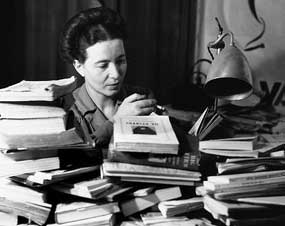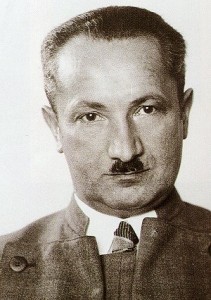… and experienced, shall we say, the anxiety of incomprehension — then here is some possible consolation.
 In their 20s, Jean-Paul Sartre and Simone de Beauvoir were among the very top philosophy students of their generation in France. Yet when they tried to read Heidegger in 1931, Beauvoir reported, “since we could not understand a word of it we failed to see its interest.”
In their 20s, Jean-Paul Sartre and Simone de Beauvoir were among the very top philosophy students of their generation in France. Yet when they tried to read Heidegger in 1931, Beauvoir reported, “since we could not understand a word of it we failed to see its interest.”
Heidegger himself explicitly practiced semi-intelligibility: “Those in the crossing must in the end know what is mistaken by all urging for intelligibility: that every thinking of being, all philosophy, can never be confirmed by ‘facts,’ i.e., by beings. Making itself intelligible is suicide for philosophy.” (Contributions to Philosophy (From Enowning), notes of 1936–1938).
(Contributions to Philosophy (From Enowning), notes of 1936–1938).
Yet at times Heidegger could be very clear, as in these 1929-1930 lectures calling for a leader “capable of instilling terror,” or in endorsing the Führer principle early in Hitler’s regime, or in this 1934 speech calling for, longingly, what will be another great war.
But those are political pronouncements, and in his basic philosophy a guided tour is perhaps helpful. My summary of the early Heidegger’s distinctiveness and his contribution to postmodernism is here, excerpted from my Explaining Postmodernism.